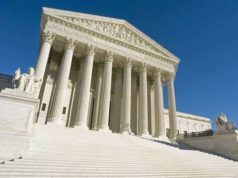
Organization & Structure:
An agency is a concept in business law where one person, called the principal, gives authorization to another person, called the agent, to act on the principal’s behalf. This agent will represent the principal by entering into contractual relationships with third parties. There are certain rules and regulations that will govern the practices of agencies. Oftentimes, when an agency is working on behalf of a principal, it will be the principal that is liable for any damages or errors created by the agent.
Common examples of principle-agent relationships are real estate brokers and consumers, or an attorney-client relationship. The Federal Trade Commission (FTC) is an agency of the United States Government. The FTC operates under the Government to protect the rights of consumers.
Types of Agencies:
There are many different types of agencies that function under the United States Government, such as Federal executive agencies. There are also independent regulatory agencies that function privately from the Government, but are still overseen by Congress. These independent agencies are better equipped to handle certain complicated areas of life. They will operate with little supervision from the Federal Government, but still have the power to enforce legislation.
Examples of these types of agencies are the Federal Communications Commission, the Federal Trade Commission, and the Environmental Protection Agency. Independent regulatory agencies have a variety of responsibilities, including protecting the environment, protecting consumers, managing America’s space program, and gathering intelligence.
Agency Powers & The Constitution:
Under the United States Constitution, the Government has the ability to delegate certain responsibilities to Government agencies. The actions of these agencies will be monitored by the Federal Government to ensure that they are acting properly and fulfilling their duties. This is permitted under the Delegation Doctrine of the Constitution. If a Government agency is not acting in accordance with the law, they may be investigated and subject to a process called adjudication.
The formation of a Government agency will be done through enabling legislation. This will give a name to the agency, how and when it will be composed, and the agency’s powers. Government agencies are responsible for three different types of operations: rule-making, enforcement, and adjudication.






























